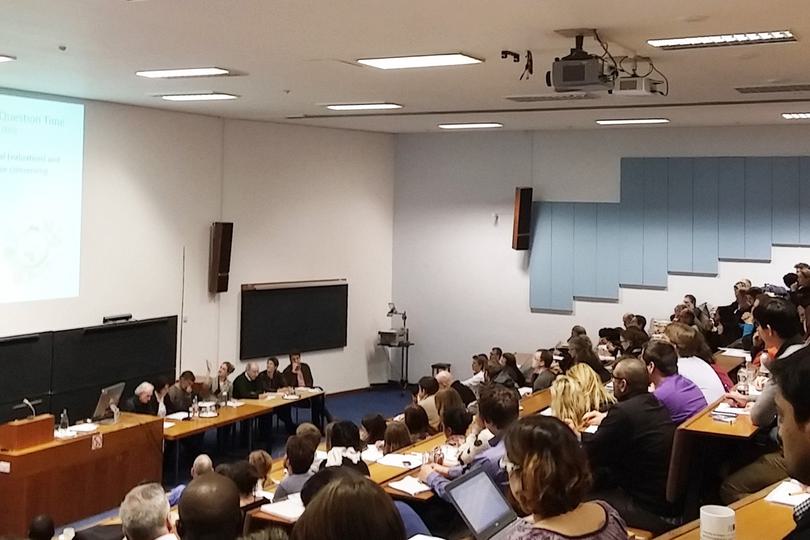
A lively debate tackling the issue of how we value Earth’s variety of plant and animal life rounded off the Oxford Biosymposium 2015.
The two-day symposium, hosted by the Biodiversity Institute, an Oxford Martin School institute, saw scientists, conservationists, economists and philosophers from around the world gather to discuss the functions and values of biodiversity. They looked at the evidence that biodiversity has value for ecosystem function, climate, food security, health, economic development and innovation, how good the methods for quantifying value are, how far economic approaches should be used, and whether there are other ways to assure widespread support for safeguarding nature.
The panel debate that concluded the event saw former UK Chief Scientific Adviser Lord May, Director of the Oxford Martin Programme on the Future of Food Professor Charles Godfray, author Donald S. Maier, Dilys Roe of the International Institute for Environment and Development (IIED), author and Guardian columnist George Monbiot, and Sybille van den Hove, Director and Partner of MEDIAN, discuss how the approach of ‘valuing’ nature could be combined with ethical arguments and the duty of stewardship.
Lord May began by arguing that protecting biodiversity was in fact part of a much larger issue, namely humanity’s lack of willingness to deal with the problems facing it, such as inequality and population growth. Dilys Roe said it appeared to her that the battle to preserving biodiversity was hampered by failure to communicate properly with different groups and recognise their needs and priorities, saying: “We must be cognisant of the audiences and talk in their languages, not ours.”
Professor Godfray voiced concerns that flaws in using an economic approach to nature could ultimately harm the arguments of those trying to protect biodiversity. “Economics is a tool for working out value that might otherwise be overlooked, but I think it must be subjugated to what must be an ethical argument,” he said. Sybille van den Hove argued that more focus was needed on vision, sustainable living and working with big corporations, saying that the primary aim of a company should be its product or service, not purely profit.
George Monbiot warned that by using economic arguments, biodiversity campaigners risked “massive bleeding” of their core values, and said that plain language needed to be used to communicate the reasons for preserving nature to the public. “Economic reasons have never motivated us so why should they motivate others? We are lying to ourselves and to them,” he said.
Professor Nathalie Seddon, Director of the Biodiversity Institute, concluded the event by explaining why she was hopeful that the fight to preserve biodiversity could be won. She said there was global popular support for protecting nature, that the corporate will existed to commit to zero deforestation and biodiversity loss, that the political will was also there and that different academic disciplines were working well together to tackle the issue.
“We can’t escape that fact that some form of valuing is unavoidable in a world of scarce resources,” she said. “But urgency must not compromise logic, and we must not lose sight of our values.”